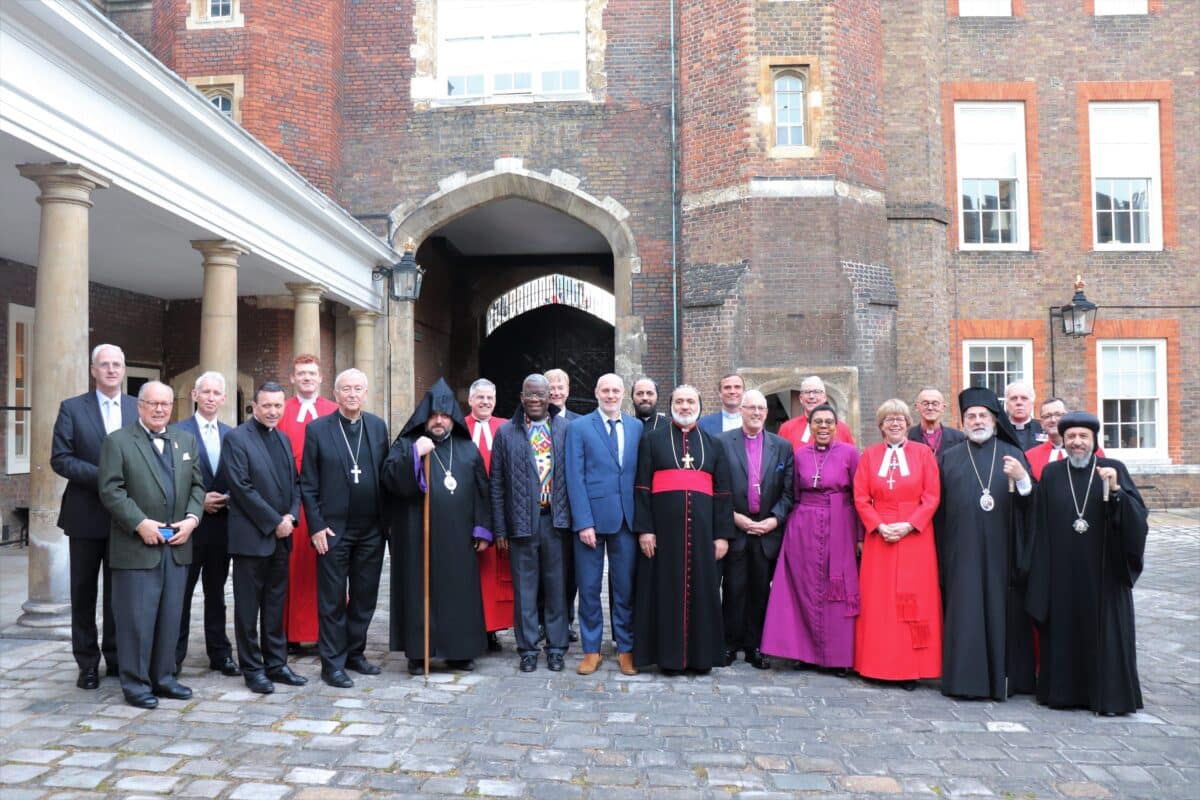Canon B43 ‘Of relations with other Churches’ outlines the Church of England’s position on relations with other churches.
The Area Bishop’s Ecumenical Officer or Adviser can provide advice about ecumenical matters and Local Ecumenical Cooperative Schemes. Any matters relating to the sharing of church buildings should be discussed with the Archdeacon in the first instance.
Area Deans are expected to be part of local meetings of Church Leaders in their boroughs or locations.
Admission to Holy Communion (Canon B15A)
Baptised and communicant members of churches which subscribe to the doctrine of the Holy Trinity and who are in good standing with their own church, and any other baptised persons authorised to be admitted under regulations of the General Synod, shall be admitted to the Holy Communion. When anyone regularly receives Communion over a long period under the provisions of Canon B15A the parish priest is required to set before him or her the normal requirements of the Church of England for every communicant, and they should be invited to come forward to confirmation by the Bishop.
Any baptised person in immediate danger of death may be given communion.
An Anglican congregation may participate in a joint service on a special occasion, on the recommendation of the Incumbent and PCC. Individuals may receive communion as their consciences allow. If there is any doubt the Area Bishop should be consulted.
No minister or licensed lay person of another denomination may officiate at any Anglican service, except with the permission of the Area Bishop.
Non-Anglicans on the Church Electoral Roll
A lay person is entitled to have their name entered on the electoral roll of a parish if they are baptised, of 16 years or above, have signed an application form for enrolment, and have declared themselves to be a member in good standing of a church which subscribes to the doctrine of the Holy Trinity (not being a Church in communion with the Church of England). They must also be prepared to declare themselves a member of the Church of England, and have habitually attended public worship in the parish during a period of 6 months prior to enrolment.
Once entered on the electoral roll a non-Anglican can stand for election to the PCC.
Use of Church Buildings by Other Christian Bodies
The advice of the Archdeacon should always be sought before any negotiation or commitment is entered into. The written approval of the Area Bishop must be obtained before any other Christian group is allowed to use a church or church premises. No tenancy can be created in a church building but a license under faculty will be necessary in most situations and there will need to be clear agreement regarding such matters as contribution to costs, time, noise levels and parking. It is also vital that the Christian group has a satisfactory safeguarding policy.
If there is genuine ecumenical co-operation in the work of the parish, a formal sharing agreement should be considered under the Sharing of Church Buildings Act 1969.
This article details advice on hiring out a church hall to Christian groups.
Advice on Sharing Buildings can be found on the Churches Together in England (CTE) website as well as a wealth of other useful material including a list of the churches to which the Act applies.
Local Cooperative Schemes
These come in a variety of forms, but each is a situation where more than one Christian denomination is working together under a formal agreement. These agreements draw their authority from the regional sponsoring body, composed of the leaders of the Churches involved. In the case of the Church of England, this must include the Bishop.
Schemes (previously known as Local Ecumenical Partnerships) include local churches who share their congregational life, local shared buildings and covenant partnerships within chaplaincies.
Any parish that wishes to consider becoming part of a Scheme should in the first instance, contact the Area Bishop and seek advice from the Ecumenical Officer or Adviser of the Episcopal Area concerned.
Anglican-Methodist Covenant
For information about the Anglican-Methodist Covenant visit www.anglican-methodist.org.uk.
